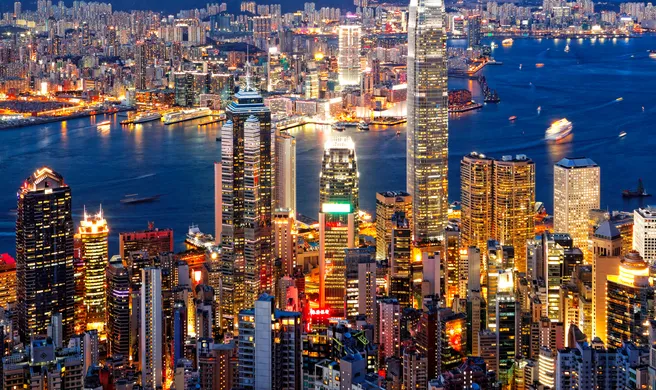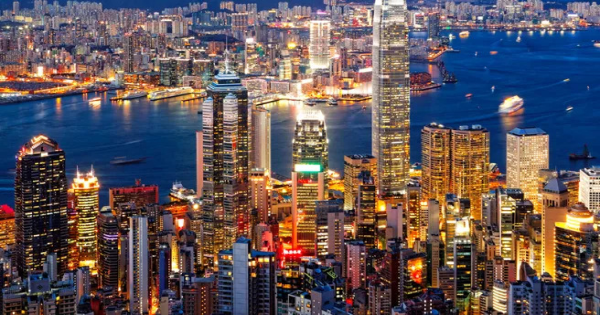Life expectancy is one of the most important indicators of a nation’s health and prosperity. While many developed countries boast high life expectancies, Hong Kong consistently ranks as the region with the longest average lifespan in the world. As of the latest data, Hong Kong’s life expectancy stands at 85.83 years, surpassing longevity leaders like Japan, Switzerland, and Singapore.
But what makes Hong Kong’s residents live longer than people in any other country? This in-depth article explores the key factors behind Hong Kong’s impressive life expectancy, including its healthcare system, dietary habits, active lifestyle, social policies, and environmental conditions. We’ll also compare Hong Kong to other long-living nations and discuss potential challenges to its leading position.

Hong Kong’s Life Expectancy in Global Rankings
According to the World Health Organization (WHO) and other global health reports, Hong Kong has held the top spot in life expectancy for several years. Below is a comparison of the latest data (2024):
| Country/Region | Average Life Expectancy (Years) |
|---|---|
| Hong Kong | 85.83 |
| Japan | 84.95 |
| Switzerland | 84.38 |
| Singapore | 84.27 |
| Spain | 83.99 |
Hong Kong’s lead is even more pronounced when looking at gender-specific lifespans:
-
Women in Hong Kong: 88.6 years
-
Men in Hong Kong: 82.9 years
This longevity is remarkable, especially considering Hong Kong’s high population density and urbanized environment. So, what’s the secret?
Key Reasons Behind Hong Kong’s High Life Expectancy
1. World-Class Healthcare System
Hong Kong’s healthcare system is a major contributor to its citizens’ long lives. Key features include:
A. Universal Healthcare Access
-
Hong Kong provides heavily subsidized medical services through public hospitals, ensuring affordability for all residents.
-
The government spends nearly 18% of its budget on healthcare, keeping costs low for patients.
B. High-Quality Medical Facilities
-
Hospitals in Hong Kong are equipped with advanced medical technology and staffed by highly trained professionals.
-
The region has one of the highest doctor-to-patient ratios in Asia.
C. Strong Focus on Preventive Care
-
Regular health screenings, vaccinations, and public health campaigns help detect and prevent diseases early.
-
Programs targeting heart disease, diabetes, and cancer have significantly reduced mortality rates.
2. Traditional & Healthy Diet
Hong Kong’s cuisine is a major factor in its residents’ longevity. The local diet includes:
A. Fresh, Balanced Meals
-
Steamed fish, leafy greens, and tofu are staples, providing lean protein and essential nutrients.
-
Congee (rice porridge) is a common breakfast, easy to digest and rich in fiber.
B. Minimal Processed Foods
-
Unlike Western diets, Hong Kong meals are low in sugar, trans fats, and preservatives.
-
Cooking methods like steaming and stir-frying retain nutrients better than deep-frying.
C. Herbal Teas & Medicinal Soups
-
Green tea, chrysanthemum tea, and ginseng-infused soups are consumed daily, boosting immunity and digestion.
-
Traditional Chinese medicine (TCM) is widely used alongside modern treatments.
3. Active & Social Lifestyle
Despite being a bustling metropolis, Hong Kong promotes physical and mental well-being through:
A. Walkable City Design
-
Efficient public transport reduces reliance on cars, encouraging walking.
-
Pedestrian-friendly streets and extensive sky bridges make daily movement easier.
B. Outdoor Activities
-
Hiking trails, parks, and waterfront promenades provide free access to exercise.
-
Tai Chi and morning exercises are common among older adults.
C. Strong Community Bonds
-
Multigenerational households ensure elderly care and emotional support.
-
Social engagement through community centers and public events reduces loneliness.
4. Government Policies & Social Welfare
Hong Kong’s government plays a crucial role in longevity through:
A. Elderly Support Programs
-
Pension schemes, subsidized elderly care, and free health checks for seniors.
-
Tax incentives for families supporting aging parents.
B. Low Crime & High Safety
-
Hong Kong is one of the safest cities in Asia, reducing stress-related health issues.
-
Strict public health regulations ensure food safety and hygiene.
C. Clean Environment
-
Despite being a major city, Hong Kong has strict air pollution controls.
-
Efficient waste management and green initiatives improve public health.
Comparison with Other High-Life-Expectancy Countries
1. Japan (84.95 Years)
-
Similarities: Healthy diet (fish, vegetables), strong healthcare.
-
Differences: Japan faces aging population challenges, whereas Hong Kong has better urban mobility.
2. Switzerland (84.38 Years)
-
Similarities: High-quality healthcare, clean environment.
-
Differences: Switzerland has a less dense population, while Hong Kong thrives despite urbanization.
3. Singapore (84.27 Years)
-
Similarities: Efficient public health policies, active aging programs.
-
Differences: Hong Kong has a more traditional diet with less processed food.
Challenges to Hong Kong’s Longevity Lead
Despite its success, Hong Kong faces some risks:
1. Aging Population Pressure
-
By 2030, over 30% of Hong Kong’s population will be over 65, straining healthcare resources.
2. Rising Living Costs
-
Expensive housing may force some elderly into poor living conditions.
-
Healthcare costs could rise as demand increases.
3. Work Stress & Mental Health
-
Hong Kong has one of the longest working hours globally, leading to stress-related illnesses.
-
Youth suicide rates are a growing concern.
Hong Kong’s record-breaking life expectancy is the result of a world-class healthcare system, a nutritious diet, an active lifestyle, and strong social policies. While challenges like an aging population and high living costs exist, the region’s proactive approach to public health suggests it will remain a global leader in longevity.
For those looking to increase their lifespan, adopting Hong Kong’s habits—such as eating fresh, minimally processed foods, staying physically active, and maintaining strong social connections—can be highly beneficial.
Would you like to live in a city where people live the longest? Share your thoughts in the comments!
FAQs
Q: Is Hong Kong a country?
A: No, Hong Kong is a Special Administrative Region of China, but it is often listed separately in global rankings due to its unique data.
Q: Why do women live longer than men in Hong Kong?
A: Biological factors, lower smoking rates, and better healthcare utilization contribute to women’s longer lifespans.
Q: Which country has the lowest life expectancy?
A: Chad and Lesotho have some of the lowest life expectancies (around 53-55 years) due to poverty and disease.
Ilmkidunya








.gif)


































